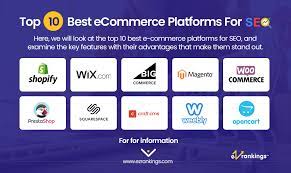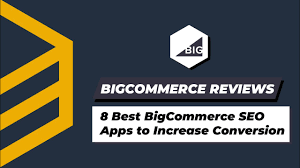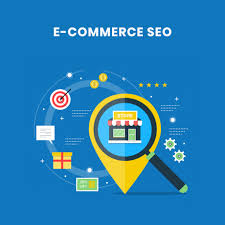The Best Ecommerce SEO Strategies to Boost Your Online Store
Search engine optimization (SEO) is crucial for any ecommerce business looking to increase online visibility and drive more traffic to their website. With the right SEO strategies in place, you can improve your search engine rankings and attract more potential customers to your online store. Here are some of the best ecommerce SEO strategies to help you boost your online presence:
Keyword Research
Identifying the right keywords is essential for optimizing your ecommerce website for search engines. Conduct thorough keyword research to discover relevant keywords that your target audience is searching for. Use tools like Google Keyword Planner or SEMrush to find high-volume, low-competition keywords that you can incorporate into your product descriptions, meta tags, and content.
On-Page Optimization
Optimize your product pages by including relevant keywords in your page titles, meta descriptions, and headings. Ensure that your URLs are descriptive and include target keywords. Use alt text for images and optimize image file names for better visibility in image searches.
High-Quality Content
Create unique and engaging content that provides value to your audience. Write informative product descriptions, blog posts, and guides related to your products or industry. High-quality content not only attracts visitors but also encourages them to stay on your site longer, reducing bounce rates and improving SEO performance.
Mobile Optimization
With the increasing use of mobile devices for online shopping, it’s essential to have a mobile-friendly website. Optimize your ecommerce site for mobile users by using responsive design, fast loading times, and easy navigation on smaller screens.
Link Building
Build high-quality backlinks from reputable websites to improve your ecommerce site’s authority and credibility in the eyes of search engines. Focus on earning links from relevant sources within your industry or niche through guest posting, influencer collaborations, or creating shareable content that attracts natural backlinks.
Technical SEO
Pay attention to technical aspects of SEO such as site speed, crawlability, indexing issues, and schema markup implementation. Ensure that search engines can easily access and understand the content on your website by fixing any technical errors that may hinder indexing or ranking.
Monitoring and Analytics
Regularly monitor your ecommerce site’s performance using tools like Google Analytics or Search Console. Track key metrics such as organic traffic, conversion rates, keyword rankings, and user engagement to measure the effectiveness of your SEO efforts and make data-driven decisions for continuous improvement.
By implementing these best ecommerce SEO strategies consistently and staying up-to-date with industry trends and algorithm changes, you can enhance the visibility of your online store in search engine results pages (SERPs) and attract more qualified leads ready to make a purchase.
Top 8 FAQs About Optimizing SEO for E-commerce Platforms
- Which ecommerce has the best SEO?
- Is eCommerce SEO different?
- How do I SEO my ecommerce website?
- Which e-commerce platform is best for SEO?
- What do you mean by SEO in e-commerce?
- Is SEO good for ecommerce?
- How can ecommerce sites achieve SEO?
- Which eCommerce platform has the best SEO?
Which ecommerce has the best SEO?
When it comes to determining which ecommerce platform has the best SEO, there is no one-size-fits-all answer. The effectiveness of SEO strategies can vary depending on various factors such as the specific needs of your online store, the level of customization and control you require, and your budget constraints. Popular ecommerce platforms like Shopify, WooCommerce, Magento, and BigCommerce offer robust SEO capabilities and tools to optimize your online store for search engines. It’s essential to evaluate each platform’s features, flexibility, scalability, and support for SEO practices to determine which one aligns best with your business goals and requirements. Conducting thorough research and seeking expert advice can help you make an informed decision on selecting the ecommerce platform that will best support your SEO efforts and drive organic traffic to your online store.
Is eCommerce SEO different?
When it comes to SEO for ecommerce websites, there are indeed some unique considerations compared to traditional SEO practices. Ecommerce SEO involves optimizing product pages, category pages, and other elements specific to online stores. Factors such as product descriptions, user reviews, structured data markup, and site architecture play a crucial role in ecommerce SEO. Additionally, managing inventory changes, handling duplicate content issues, and optimizing for long-tail keywords related to specific products are essential for driving organic traffic and increasing conversions on ecommerce sites. Therefore, while the fundamental principles of SEO apply to both ecommerce and non-ecommerce websites, the strategies and tactics used in ecommerce SEO are tailored to meet the distinct needs of online retailers.
How do I SEO my ecommerce website?
Optimizing your ecommerce website for search engines involves a combination of strategies to improve visibility and attract more organic traffic. To SEO your ecommerce website effectively, start by conducting thorough keyword research to identify relevant search terms that your target audience uses. Incorporate these keywords strategically in your product pages, meta tags, and content. Focus on creating high-quality, unique content that provides value to users and encourages engagement. Ensure your website is mobile-friendly, optimized for speed, and easy to navigate. Implement on-page optimization techniques such as optimizing meta descriptions, headings, and image alt text. Build a strong backlink profile from reputable sources within your industry. Regularly monitor and analyze your site’s performance using tools like Google Analytics to track progress and make data-driven decisions for continuous improvement. By following these best practices consistently, you can enhance the SEO of your ecommerce website and increase its visibility in search engine results pages.
Which e-commerce platform is best for SEO?
When it comes to choosing the best e-commerce platform for SEO, there are several factors to consider. Some popular e-commerce platforms known for their SEO capabilities include Shopify, WooCommerce, Magento, and BigCommerce. Each platform offers unique features and functionalities that can impact your website’s search engine optimization efforts. It is essential to select a platform that provides customizable URL structures, mobile responsiveness, fast loading speeds, easy integration with SEO tools, and robust technical SEO capabilities. Ultimately, the best e-commerce platform for SEO will depend on your specific business needs, budget constraints, and long-term growth goals. Conducting thorough research and seeking expert advice can help you make an informed decision that aligns with your SEO objectives and overall online business strategy.
What do you mean by SEO in e-commerce?
Search Engine Optimization (SEO) in e-commerce refers to the practice of optimizing online stores to improve their visibility and rankings on search engine results pages (SERPs). It involves implementing various strategies and techniques to attract organic traffic from search engines like Google, Bing, and Yahoo. By focusing on aspects such as keyword research, on-page optimization, content creation, mobile responsiveness, link building, and technical SEO, e-commerce businesses can enhance their online presence, reach a wider audience, drive more qualified traffic to their websites, and ultimately increase sales and conversions. SEO is essential for e-commerce success as it helps businesses stand out in a competitive online marketplace and connect with potential customers actively searching for products or services they offer.
Is SEO good for ecommerce?
Implementing SEO strategies is highly beneficial for ecommerce businesses. SEO plays a crucial role in improving the online visibility of ecommerce websites, attracting organic traffic, and increasing the chances of converting visitors into customers. By optimizing product pages with relevant keywords, creating high-quality content, building backlinks, and focusing on technical aspects like site speed and mobile optimization, ecommerce sites can enhance their search engine rankings and reach a wider audience. With effective SEO practices in place, ecommerce businesses can establish a strong online presence, drive targeted traffic to their website, and ultimately boost sales and revenue.
How can ecommerce sites achieve SEO?
To achieve SEO success for ecommerce sites, it is essential to implement a comprehensive strategy that focuses on optimizing various aspects of the website. Key steps include conducting thorough keyword research to target relevant search terms, optimizing product pages with targeted keywords in titles and descriptions, creating high-quality and unique content that engages users, ensuring mobile optimization for a seamless user experience on all devices, building authoritative backlinks from reputable sources, addressing technical SEO issues like site speed and indexing, and monitoring performance metrics to track progress and make data-driven decisions for continuous improvement. By following these best practices and staying informed about the latest SEO trends, ecommerce sites can enhance their online visibility and attract more organic traffic from search engines.
Which eCommerce platform has the best SEO?
When it comes to determining which eCommerce platform has the best SEO capabilities, several factors come into play. While platforms like Shopify, WooCommerce, Magento, and BigCommerce are popular choices for online stores, the effectiveness of their SEO features can vary based on individual needs and goals. Factors such as customizable URLs, mobile responsiveness, page load speed, built-in SEO tools, and ease of optimizing content all contribute to a platform’s SEO performance. Ultimately, the best eCommerce platform for SEO is one that aligns with your specific business requirements and allows you to implement effective optimization strategies to improve your online visibility and drive organic traffic to your store.





Hi! Someone in my Facebook group shared this site with us so I came to look it over.
I’m definitely loving the information. I’m bookmarking
and will be tweeting this to my followers!
Excellent blog and superb style and design.
Thank you for your kind words! We’re glad you found the information valuable and enjoyed reading our blog. Feel free to share it with your followers. Your support means a lot to us!